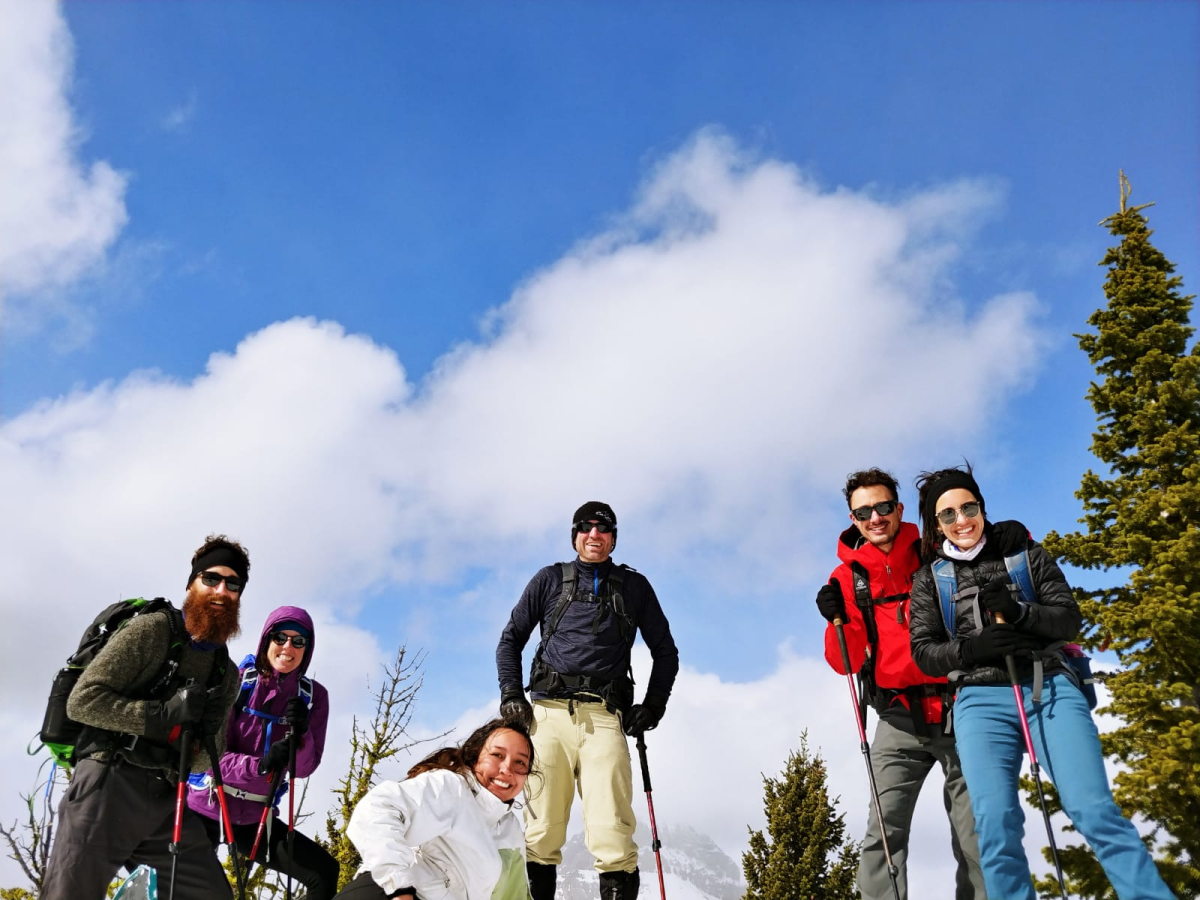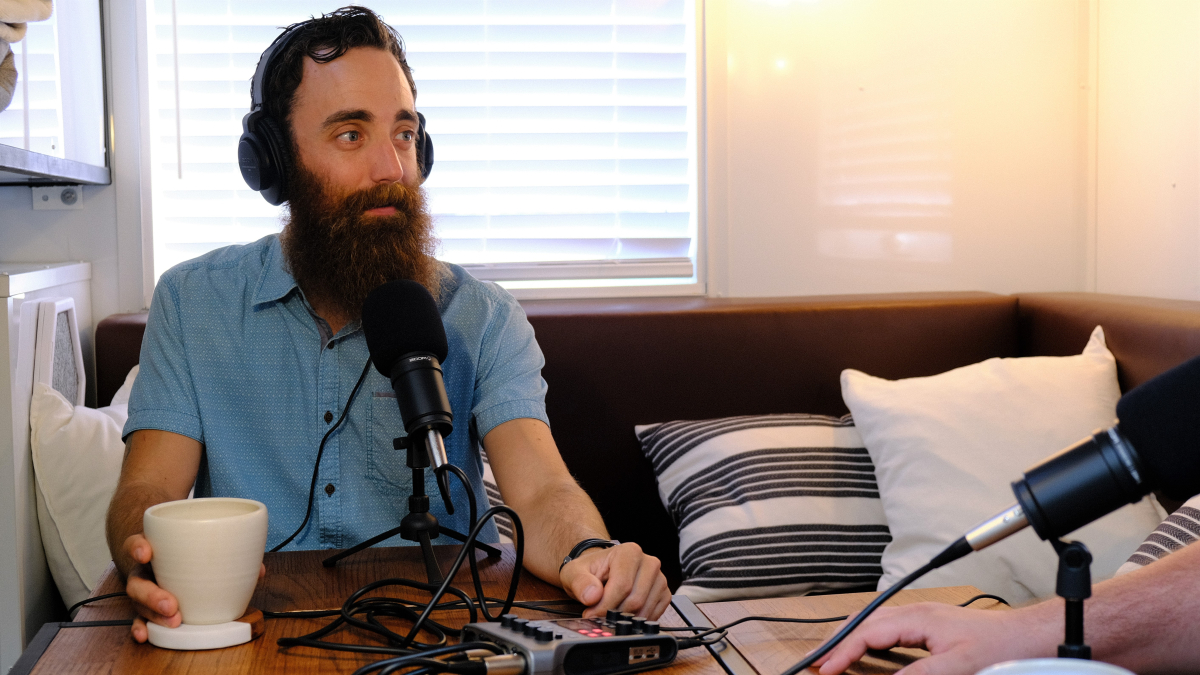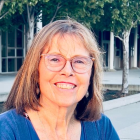Support strong Canadian climate journalism for 2025
Michael Bartz wants to save you from getting in over your head.
This 34-year-old Albertan decided to cut his carbon footprint, so he built his own off-grid tiny home, trades living on farmland for rent and keeps his consumer goods minimal. But getting to carbon zero is hard. Determined to keep learning, he set up In Over My Head podcast, now in its fifth season, so we can all benefit from his journey.
This piece is part of a series of profiles highlighting young people across the country who are addressing the climate crisis. These extraordinary humans give me hope. I write these stories to pay it forward.

Tell us about your podcast.
I knew I had a lot to learn and I wanted to scale up so others could benefit.
I received crucial funding and mentorship from the Telus STORYHIVE 2020 Podcast Edition and started close to home. For example, John Chief Calf, the co-ordinator of Indigenous education for Lethbridge School District 51, taught me about the importance of including Indigenous understandings of the environment in the educational curriculum, and that meaningful conversations between cultures can make a difference.
In my deep dive into transportation, I learned how important trains and cycling are to the climate challenge. Prof. David W. Zingg from the Institute for Aerospace Studies at the University of Toronto helped me understand the impact flight has on greenhouse gas emissions and about potential emissions reductions from designing airplanes differently. I learned we can all get involved in making flight more environmentally friendly.
University of British Columbia political science professor, Kathryn Harrison, helped me understand how the provincial and federal governments' relationship impacts climate policy.
There are conversations about energy, economics, community engagement and financial management, and much more.

What have you learned that surprised you?
I thought it would be simple to align my life with my values if I just built my own sustainable lifestyle. Now, I see everything is connected. While individual change is important, it is also needed across all systems, and in every system, there are things individuals can do to support change at the scale and pace we need.
We cannot allow perfection to get in the way. Sometimes people feel they have no voice about climate change if they still fly to see loved ones or work in the oil and gas industry or eat meat or live in a single-detached house that is not so tiny. We all need to decide which of our values to prioritize and start there. Climate change requires us to admit that we cannot wait until we know or can do everything. Nor can we walk in anyone else’s shoes. We must get comfortable with complexity.

Tell us about your background.
I was raised in Lethbridge by my mom, a nurse, and my dad, a mechanic. They made sure we had family camping trips and appreciated the natural world. My dad and I built things together and when he took a lower-paying job so we could spend more time together, he showed there are more important things than making tons of money. I was encouraged to explore my artistic side and trained as an actor.
Coming out of school, I knew going to the big city to pursue a career in theatre or film was not for me. I asked: “Who am I, what am I good at and what is my life to be?” I can build things. I am curious. I work hard. I care about my community and my family. I wanted to build my own home and make a path that respects the Earth and the people around me.
My wife is a microbiologist and she shares my values. And here we are. I am building community working for the lovely older couple who own the farmland under my home, but it is on wheels so I am not dependent on them. I love spending time outdoors with friends and enjoy other aspects of my life, like acting. The podcast allows me to be curious and to add value so others don’t have to start from scratch. I am happy.
What do you worry about?
The disinformation out there about climate change is divisive. I like to think I am helping to keep the conversations informed, nuanced, thoughtful and kind.

What is your vision if we get this right?
Seth Klein, author of The Good War, was a podcast guest. He said young people enlisted in droves in the Second World War, dreaming of a better future after winning the war. If we get this right, everyone will have cleaner air and drinkable water, our children will be educated to engage in democracy, homes will be more affordable in part because energy will be cheaper and green space will be part of everyone’s daily life. We must dream big together!
What would you like to say to other young people?
Work that aligns with your values exists. Podcasting has taught me the joy of listening and becoming informed.
What about older readers?
Listen to podcasts! There is so much happening out there.
Your political voices really do matter. Use them.
We need the young dreamers in your lives and they need you to believe in them.






Comments
Excellent....and he is right about starting now, doing everything you can in your situation.......and please, for the love of the diverse goddess, lets stop believing one or two silver bullets are going to do it. Eat less meat, but don't imagine that vegetables from away necessarily were kind to the planet in their growing. Look for smaller footprints in everything......too much stuff just equals clutter...solarize if you can, go electric if you can, grow some of your own food if you can.
Get politically involved....our 8 year old grand daughters are knocking on doors for their future. Refuse to vote for climate denialists. Accept that the transition is likely going to take your lifetime....and learn, learn, learn.
Its what's keeping my partner and I young.